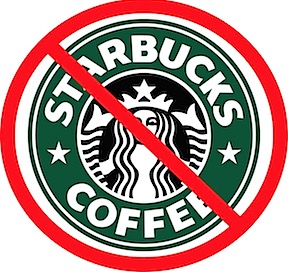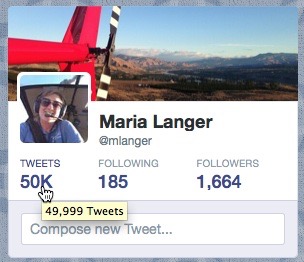Who you meet, how you meet them, and what they think of you can impact your flying career.
In this series:
– Part 1: Read this First
– Part 2: Save Up
– Part 3: Start Young
– Part 4: Choose a Reputable Flight School
– Part 5: Check Your Attitude at the Door
– Part 6: Study Hard
– Part 7: Stay Slim
– Part 8: Be Willing to Travel
– Part 9: Pay Your Dues
– Part 10: Network
– Part 11: Don’t Bite the Hand that Feeds You
more to come…
[Note: Hard to believe that nearly four years have gone by since I wrote most of this series, but I find that the older I get, the faster time flies. I’d planned on writing additional parts, but life got in the way. I’m ready to continue now and, with four years to think about it, I’m pretty sure I’ve got some good content to add.]
Networking is an important part of building any career, including flying helicopters. The people you meet can help — or hinder — your career advancement.
How Networking has Helped My Flying Career
I’ve been flying helicopters for about 15 years now and have accumulated a modest 3,200 hours of flight time, mostly in my R44 and the R22 I owned before it. I’ve been networking with other pilots, owners, and operators since I realized I wanted to build a career as a pilot and it has paid off.
It’s networking that got me an interview with Papillon at the Grand Canyon back in 2004. What I said at the interview got the job.
It’s networking that got me started as a cherry drying pilot back in 2008. I met a pilot doing this kind of work and when he needed a pilot, he remembered and called me.
It’s networking that got me started doing frost control work back in 2013. I spoke to another pilot doing that kind of work and asked him if he knew of any jobs. He gave me the phone number of an almond grower and gave me the information I needed to write a mutually beneficial contract with a new client.
It’s networking that gets me just about all of my new business. Other than maintaining a website for my business, I don’t advertise anymore. I get new clients through word-of-mouth. When I want to explore the possibility of a rides gig, I look through my address book for friends and acquaintances who might have the connections I need to get a toe in the door.
And it’s networking that makes it relatively easy to find new pilots to work with me for cherry drying. I start my search by asking around. I remember the pilots I like — and the ones who rubbed me the wrong way — and make offers — or ignore requests — accordingly.
How to Network
Networking is actually kind of easy. Just meet and talk to new people involved in the industry. Need some ideas to get started? Try these:
- Get to know other pilots at your flight school or job. Don’t be shy. Socialize. The guy you see in the pilot lounge at your flight school today might be someone working at the Gulf when you’re looking for work — and give you the contact you need to get an interview there. The CFI leaving to work at Papillon next week could be the chief pilot at a charter operation in a few years.
- Join a helicopter organization. HAI and Whirly Girls comes to mind — although I admit that I don’t belong to either one of them for reasons I’d rather address in a separate blog post. These organizations are full of helicopter pilots and others in helicopter-related jobs. You can meet other members at events.
- Attend helicopter aviation conferences and seminars. HeliExpo is an obvious suggestion, but other helicopter organizations and publications (such as Vertical Magazine) also sponsor events. And don’t forget the FAA! The Wings program occasionally has lectures for helicopter pilots; try attending one.

I’ve had the pleasure of chatting with the pilot of one of these. Don’t you think it might be interesting to learn more about his work?Attend helicopter-related events. I’m thinking of helicopter fly-ins and other airport events. Although relatively rare, they do exist and they’re often full of helicopter pilots who are friendly and enthusiastic. I can think of three pilots I’m still very good friends with who I met at a helicopter event at Falcon Field Airport in Mesa, AZ years ago. One of them has worked for me drying cherries here in Washington.
- Visit pilots at work. Years ago, on a road trip in Idaho, I passed a field filled with helicopters — a fire base. A Boeing Vertol 107 was parked there and I, a new pilot at the time, wanted to see it close up. I drove into the base, parked, and tracked down the pilot. Because he wasn’t busy, he very graciously took me aboard his ship, showed me how the snorkel pump worked, and let me sit in the co-pilot seat while he sat next to me and explained the mind-boggling array of switches, circuit breakers, and gauges. Although my goal that day was not to network with other pilots, I could easily have done so — there were a dozen or so waiting around for a fire call. Of course, if the base had been active, I would have stayed away. But there’s no reason you can’t visit pilots on duty but not actively working. Think of EMT and ENG bases, too. Often, the pilot is just sitting around, waiting for a call and wouldn’t mind a visitor. Just make sure you’re welcome before you barge in.
The Role of Social Networking
Social networking takes all kinds of networking to a new level. You can network 24/7 with pilots all over the world through Twitter, Facebook, LinkedIn, and online forums. Helicopter-specific groups on Facebook, for example, is a good way to share stories, photos, and questions with other pilots.
I’ve met more than a few helicopter pilots on Twitter and Facebook; while my social networking hasn’t advanced my career — or theirs — yet, who’s to say it won’t? In the meantime, I’ve gotten a ton of solid advice from pilots with far more experience than I’ll ever have. That, and the real-life friendship with some of these people, is worth the time and effort I put into online social networking.
Don’t Be a Dick
But be careful! Your activities — both online and in the real world — can come back to haunt you. It all depends on how you approach networking, how you treat your fellow pilots, and what your attitude is or seems to be.
I blogged about a pilot who proved what an inconsiderate and dangerous asshole he could be back in 2009. I’d flown into Sedona, AZ with my brother and his wife and a helicopter pilot didn’t like where I parked. He retaliated by hover-taxiing right past my family, within 15 feet of where they were standing, when he had several other safer departure routes. I reported his action to the airport management. When I reported him to my POI at the Scottsdale FSDO, I was told that he’d caught by an Inspector being rude to the receptionist. The Inspector had attempted an attitude adjustment, but I doubt he got anywhere with this particular jerk.
As regular readers of my blog know, I absolutely abhor online forums. The reason: every single discussion turns into a nasty exchange of inane comments, normally prompted by the comments of a troll who has to prove how smart he is by saying something that gets under the skin of someone else. The replies are fired out fast and furiously and inevitably turn mean. Why people put up with that crap is beyond me. I seldom find any content worth reading in an online forum. But that’s likely because I lack the patience necessary to wade through the bullshit for the gems hiding underneath. Unlike the trolls that haunt these forums, I have a life.
I remember the names of the assholes I meet in this industry. I remember the trolls in the forums, too. And I have a lot of friends in the industry. And we talk.
And what we share affects hiring decisions. Just saying.
I wrote a bit more about attitude in Part 5 of this series.
Networking Works — But It Can’t Work Miracles
I’ve had a good amount of success with networking to further my career, but I have to admit that career advancement isn’t the main reason I network with other pilots. I’m a relatively friendly person and I really like talking to people with similar interests. I’m also interested in learning new things from people who know, through experience, things I don’t know. I guess you can say I’m a natural at networking.
But I do admit that I’m frustrated annoyed by people who contact me directly, by email or phone or even blog comments, obviously trying to use me as an “in” for a job. News flash: contacting a stranger to ask for a favor is not a good networking strategy. I admit that I’m more likely to delete these incoming emails than answer them. Maybe it’s because I’m getting curmudgeony in my old age.
You can’t expect networking to work miracles, especially if you use a heavy handed approach. Just because you had a nice conversation with the Chief Pilot of a charter company while the two of you waited out a thunderstorm in the pilot lounge of an FBO doesn’t mean he’s going to hire you for the next position that opens. Especially if you come across as someone who’s only talking to him because you think that job offer is possible.
But if you make networking a natural part of your professional life, things will happen — normally, when you least expect it.




 And there is this added cheat: a movie — no matter what length it is — counts as just an hour. But, at the same time, an “hour-long” TV episode watched without commercials, which is really only about 44 minutes long, would also count as an hour. I’ll need a scorecard to keep track. It should be interesting to see how I do.
And there is this added cheat: a movie — no matter what length it is — counts as just an hour. But, at the same time, an “hour-long” TV episode watched without commercials, which is really only about 44 minutes long, would also count as an hour. I’ll need a scorecard to keep track. It should be interesting to see how I do. Yes, I need to lose weight again. Doesn’t everyone?
Yes, I need to lose weight again. Doesn’t everyone? One of the things social media time has stolen from me is writing time. Instead of sitting down to write a blog post or an article for a magazine or even a chapter of a book, I spend that time on Facebook or Twitter or even (sometimes) LinkedIn. Or surfing the web. This are mostly unrewarding, unfulfilling activities. I get so much more satisfaction out of completing a blog post or article — especially when there’s a paycheck for the article.
One of the things social media time has stolen from me is writing time. Instead of sitting down to write a blog post or an article for a magazine or even a chapter of a book, I spend that time on Facebook or Twitter or even (sometimes) LinkedIn. Or surfing the web. This are mostly unrewarding, unfulfilling activities. I get so much more satisfaction out of completing a blog post or article — especially when there’s a paycheck for the article. Why do I go in there? The coffee isn’t even that good!
Why do I go in there? The coffee isn’t even that good! And don’t say it’s the dark chocolate covered graham crackers. Although it could be.
And don’t say it’s the dark chocolate covered graham crackers. Although it could be.
